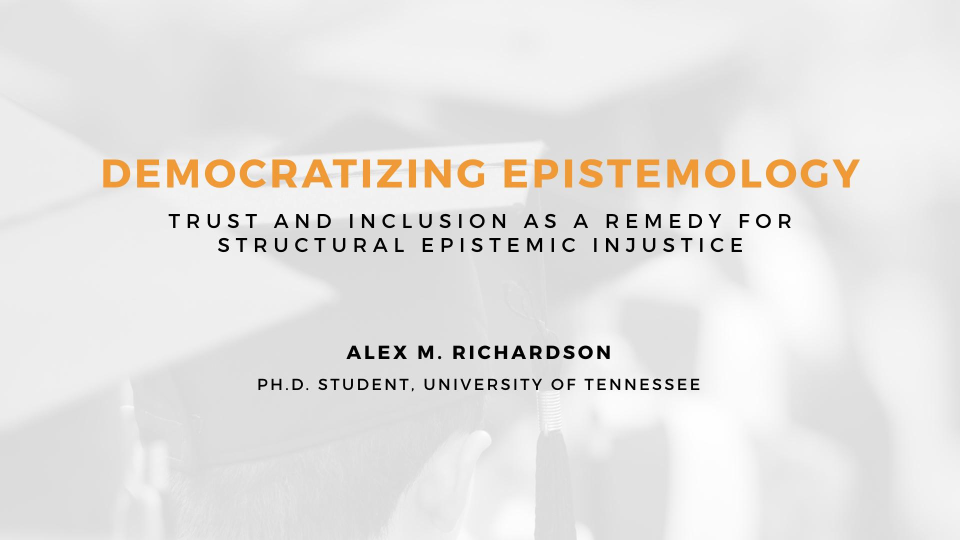Democratizing Epistemology: Trust and Inclusion as a Remedy for Structural Epistemic Injustice
The Southern Journal of Philosophy Workshop on the Epistemology of Justice
Memphis, TN, March 22, 2019
Presentation Slides / Conference Draft
Among the many forms of social oppression which unfortunately persist in contemporary societies, that which implicates various groups’ status as knowers stands out as uniquely pernicious. In this project, I argue that Miranda Fricker’s influential account of epistemic injustice, while initially promising, requires solutions which operate in more clearly structural ways in order to combat the social problems she identifies on a sufficiently comprehensive scale. Ultimately, I advocate a move toward a qualified version of what Elizabeth Anderson calls a democratic political epistemology. While my approach, like Anderson's is informed by a tradition of egalitarian intuitions in political philosophy, I stipulate that any corrective measure ought to be tempered by a serious consideration of the implications of feminist standpoint accounts of social epistemology. More specifically, I endorse the notion that marginalized groups have privileged epistemic access to their own experiences of oppression, and argue that we ought to integrate this key insight—a kind of epistemic prioritarianism—into our corrective account. It is my hope that a move toward this conception of epistemic inclusion can provide a suitably comprehensive method of structural response to pervasive epistemic injustices which are an unfortunate mainstay of contemporary democracies, both interpersonally and institutionally.
